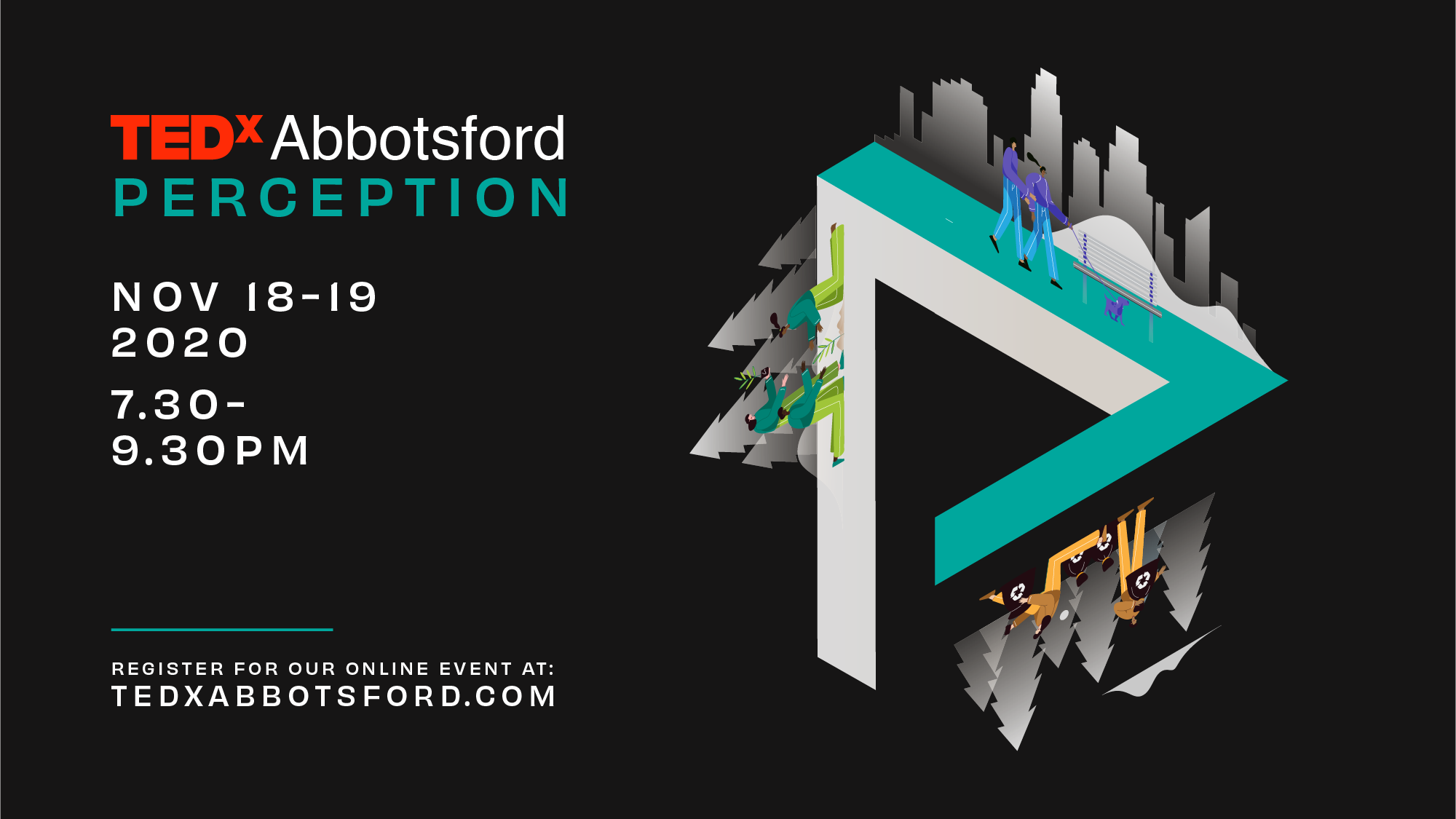Perception gets shifted
TEDx Abbotsford took place on Nov. 18 and 19. This two-night event consisted of talks given by community members working in various fields, followed by question-and-answer periods with each speaker. TEDx Abbotsford is an independently organized event and draws its speakers from the community and surrounding areas. 2020 was the fourth annual TEDx Abbotsford, and the organizers managed to work within the limitations of COVID-19 to present a well-planned and thoughtful event.
This event, like many other events this year, was a digital affair. Presented over Zoom, the event consisted of seven pre-recorded keynote speeches that premiered in front of a live audience.
When asked about the move into the online space, co-founder Dr. Johann Roduit said: “It was a challenge because one of the fun parts [of TEDx] is to meet and see people, but we still wanted to do it. The end product is the video [of the talk], so that worked. It required more work to film the videos, but we still wanted to amplify these voices in the community.”
The overall theme of TEDx Abbotsford this year was perception. Speakers ranged from small business owners to students and teachers, and from hip-hop and spoken-word artists to technology ethicists. Their talks were as varied as the speakers themselves. While many of them touched on COVID-19, there was also discussion of environmentalism, rapidly developing technologies, diversity, and advocacy.
TEDx Abbotsford partnered with the Abbotsford Art Council to bring a limited-access digital art gallery to attendees. Local artists made pieces based on the conference theme of perception.
The first of the talks was given by Mara Mennicken, the founder of a chocolate company, The Good Chocolatier. Mennicken talked extensively about marginalization, particularly from the perspective of someone who employs several people on the autism spectrum, and socially equitable businesses. She talked about the need to build an economy that better reflected the diversity we see, both in Vancouver and on a national and global scale.
Dr. Jennie Moore, an urban ecologist and accomplished leader in global sustainability, presented on the topic of sustainability, and how we can get to one-planet living. One-planet living, as defined by Moore in the following Q&A period, is a lifestyle that if everyone were to adopt, we could live sustainably. Her three takeaways to make change in our own lives were to be conscious about our diets, choosing foods with a small environmental footprint such as fish, chicken, or plant-based proteins as opposed to red meat; finding ways to engage in low environmental impact transportation, such as public transit or carpools; and getting involved politically.
Saint Soldier, a hip-hop and spoken-word artist, talked about the intersection between being an artist and being an activist, and how in talking about difficult subjects he has found himself branded an activist when that is not the relationship he has to his art.
The final speaker of day one was UFV’s own Dr. Satwinder Kaur Bains, whose talk was about how perception affects our view of the world, and how we can begin unlearning internal biases — difficult but necessary work to try and make the world a little better.
Day two’s talks were just as engaging and dynamic as day one’s, beginning with Dr. Cindy Jardine, who holds a research chair at UFV. Her talk focused on the different types of risk analysis (analytical, emotional, and insurance), and how we need to use both an analytical and emotional perspective of risk to properly engage with the world.
Next up was Jordan Eshpeter, a technology practitioner who leads research and planning practice at a design agency in Vancouver. He talked about the rapid development of technology and the need for new ethics in the shifting technological landscape of our current reality.
The final talk was given by Tsandlia Van Ry, who described how her heritage as an Indigenous woman has led her to think about the way in which we approach education. She talked about how colonialism still affects schools and how to promote acceptance and understanding of cultural identity in the classroom. Van Ry also discussed the need to embrace culturally responsive education and her hopes for the future of education.
Like many virtual events, TEDx Abbotsford did have minor technical difficulties. Overall, the pre-recorded videos, as opposed to live speeches, gave speakers the chance to produce visually dynamic videos, with more expressive backdrops and cinematography used to enhance many of the speeches. While not everyone took this opportunity, many did, and the production value of these videos is commendable.
Many of the talks can be found in a dedicated YouTube playlist on the TEDx Abbotsford YouTube channel.


